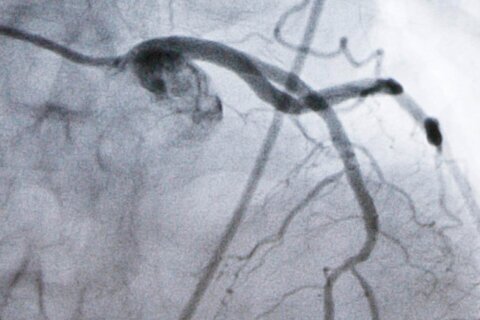Instead of concentrating on cutting calories or carbs, a health researcher and assistant professor at Virginia Tech suggests reducing the amount of highly processed food that has been physically and chemically modified.
“A lot of people have this kind of ‘calories in, calories out’ advice for weight management and weight loss,” said Alexandra DiFeliceantonio, an assistant professor with the Fralin Biomedical Research Institute at Virginia Tech Carilion.
Dieters also often focus on macronutrients, such as fats or carbohydrates.
“Remember the low-fat craze in the 1990s?” DiFeliceantonio said. “Now, we’re in a bit of a low-carb craze.”
DiFeliceantonio said some recent research suggests thinking differently about diet.
“The processing that those foods have undergone is going to change the impact on your health,” she said.
“I’m not talking specifically about just weight,” said DiFeliceantonio, a neuroscientist who studies how the brain integrates peripheral signals to guide food selection and eating behaviors.
What kind of foods qualify as ultra-processed?
“They are foods that you cannot produce in your home kitchen,” she said. “So, they’re either made by techniques that you can’t replicate, like really high heat, or extrusion, or they contain ingredients that you don’t have in your home kitchen.”
DiFeliceantonio said high consumption of ultra-processed food “has been associated with various forms of cancer — colorectal, ovarian, neck — as well as cardiovascular [disease] and all-cause mortality.”
Healthier food choices are whole foods, she said.
“Pick up a piece of fruit; eat a vegetable; steam a vegetable, cook a piece of meat.”
DiFeliceantonio said ultra-processed foods share the addictive qualities of tobacco, alcohol and other substances. They also affect the brain.
“They have been engineered to be delicious,” she said.
Given the choice between a rich, chocolate cookie and a fresh apple, DiFeliceantonio said the cookie has been tweaked to give it an edge.
It has “just the right amount of sugar, just the right amount of fat, just the right amount of sodium to make you want to keep eating more of that — that is really different from an apple.”
Unlike ultra-processed foods, with their addictiveness, “Foods in the natural environment just were not created that way,” she said.
Adding to the challenge is the marketing of highly processed food. While recently pumping gas, she saw an advertisement for fried chicken on the gas pump.
“I think we’ve kind of forgotten that our environment doesn’t really have to be like this — to have these cues for these foods, everywhere,” said DiFeliceantonio. “That’s really difficult when your entire environment is set up to make you want to eat them.”








